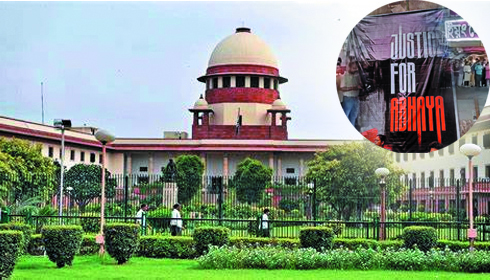
CJI Criticizes West Bengal Policy on Banning Women Doctors' Night Shifts during RG Kar Case Hearing
During the Supreme Court hearing on the brutal rape and murder of a junior doctor at RG Kar Medical College on September 17, 2024, Chief Justice of India (CJI) D.Y. Chandrachud criticised West Bengal's new policy banning women doctors' working during night hours. The case has received a lot of attention, exposing broader issues such as safety at the workplace and gender equality in the medical industry and directed Kapil Sibal representing the state of West Bengal to nullify the same through a notification.
During the hearing, lawyers for the doctors expressed concern about the state's policy of increasing working hours for women beyond 12 hours and barring women from working night shifts. Despite implementing this regulation as a protective measure, the West Bengal government has faced criticism for its potential to harm women's professional opportunities.
CJI Chandrachud sharply criticised the idea, saying, "How can you say women cannot work at night? Why ban women doctors? They do not want a concession. Women are willing to work the exact same shift." The Chief Justice emphasised that the solution rests not in limiting women's working hours but in improving security measures.
The CJI's observations highlight a fundamental issue: guaranteeing safety over imposing gender-based limitations. "Mr. Sibal, evaluate it; the answer is security," Chandrachud said. This statement suggests a growing understanding that addressing workplace safety should prioritize strong security measures over limiting opportunities for women.
The CJI also criticised the state's approach, noting that such regulations do not apply in other professions where night labour is frequent. "You must correct the notification," the man stated. "It is your obligation to ensure security. You cannot claim that women (doctors) can't work at night! Those who work at night include pilots, soldiers, and others.
The Supreme Court's intervention in the RG Kar case emphasises the link between gender equality and occupational safety. We expect the Chief Justice's remarks to influence current discussions on how to effectively protect medical professionals while guaranteeing equal opportunities for all.
The criticism of the West Bengal regulation comes amid larger calls for enhanced hospital safety procedures. Following the RG Kar disaster, young doctors have advocated for institutional improvements to address safety problems and prevent future fatalities.
The West Bengal administration is now under pressure to review and amend its policy on night shifts for female doctors. The Supreme Court's stance suggests that significant security measures, not a blanket ban, should underpin any restrictions on women's working hours to ensure their safety.
As the case progresses, stakeholders in the medical and legal communities will closely watch to see how the government responds to the CJI's mandate and whether the updated regulations adequately address the concerns raised by the doctors and the court.